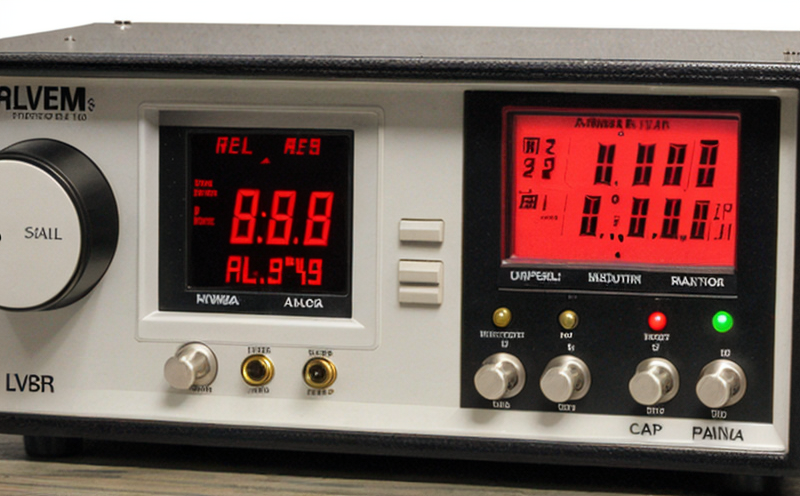ISO 8769 Reference Sources for Calibration of Detectors
The ISO 8769 standard is a cornerstone in the calibration and validation of radiation detectors. This international standard provides specific reference sources to ensure that the performance of various types of radiation detection instruments meets stringent quality control criteria. Compliance with this standard is critical for industries dealing with nuclear materials, medical applications, environmental monitoring, and research facilities where accurate measurement of ionizing radiation is paramount.
The primary purpose of ISO 8769 reference sources lies in their ability to generate a known and stable spectrum of gamma rays or X-rays. These sources are used as the benchmark against which the performance of detectors can be verified. The standard specifies detailed procedures for preparing, storing, and using these reference sources to ensure they remain accurate over time.
The calibration process typically involves exposing the detector under test to a known amount of radiation from an ISO 8769 reference source. The response of the detector is then compared against expected values derived from the standard. This comparison allows for adjustments to be made, ensuring that the instrument operates within acceptable tolerances.
One key aspect of this service involves understanding the types of detectors covered by ISO 8769. These include scintillation detectors, semiconductor detectors, and ionization chambers among others. Each type has unique characteristics and requires specific calibration techniques to achieve optimal performance. The expertise required to perform these calibrations accurately is extensive, involving not only a deep knowledge of the detector technology but also proficiency in radiation physics.
The industry landscape for this service is characterized by stringent regulatory requirements and increasing demand for precision in radiation measurement. Compliance with standards such as ISO 8769 ensures that the equipment used in critical applications performs reliably, enhancing safety and accuracy across various sectors. The reliability of these detectors can directly impact public health, environmental protection, and industrial processes.
Another significant factor is the ongoing need for continuous calibration to account for wear and tear on detector components over time. Regular calibration with ISO 8769 reference sources helps maintain consistent performance metrics, which is essential in ensuring that data collected remains valid and reliable. This process also supports the traceability of measurement results back to international standards.
The service provided involves not only the technical aspects of calibrating detectors but also the provision of detailed reports outlining the calibration process and outcomes. These reports are crucial for maintaining compliance with regulatory requirements and for internal quality assurance purposes within organizations. The expertise required to interpret these reports accurately is essential for making informed decisions regarding detector performance.
| Detector Type | Calibration Criteria | Reference Source |
|---|---|---|
| Scintillation Detectors | Gamma Spectroscopy | BaF2, CaF2 |
| Semiconductor Detectors | X-ray Absorption | Cu, Mo targets |
| Ionization Chambers | Electron Beam | BaF2 |
Industry Applications
The ISO 8769 reference sources find extensive applications across several industries, including nuclear power plants, medical facilities, and environmental monitoring agencies. In the context of nuclear power plants, these detectors are used to measure radiation levels around fuel rods during refueling operations, ensuring safety protocols are adhered to.
In the medical field, particularly in radiology departments, accurate radiation measurement is essential for both patient safety and optimal treatment outcomes. The use of ISO 8769 reference sources ensures that diagnostic imaging equipment operates within specified limits, minimizing exposure risks while maximizing diagnostic accuracy.
Environmental agencies utilize these detectors to monitor radioactive contamination levels in soil, water, and air samples. By calibrating their instruments against the standards set by ISO 8769, they can ensure that environmental regulations are met and public health is protected.
The research sector also benefits significantly from this service, as it allows for precise measurements in laboratory settings where understanding minute fluctuations in radiation levels is crucial. This precision supports advancements in both basic science and applied technology.
Eurolab Advantages
Our proficiency in ISO 8769 calibration sets us apart as a premier service provider. With a team of highly qualified professionals specializing in radiation physics, we offer unparalleled expertise and reliability. Our state-of-the-art facilities ensure that all calibrations are conducted under controlled conditions, leading to consistent results.
We provide not only the technical aspects of calibration but also comprehensive training sessions for your staff, enabling them to perform routine checks independently. This capability enhances internal quality assurance processes significantly and reduces dependency on external services.
Our commitment to continuous improvement is reflected in our adherence to international standards and our ongoing participation in professional development programs. We pride ourselves on delivering not just a service but also long-term partnerships based on trust and mutual respect.
Why Choose This Test
Compliance with ISO 8769 standards is essential for any organization dealing with radiation detection. It ensures that the instruments used are accurate, reliable, and meet regulatory requirements. This compliance not only protects public health but also enhances operational safety within facilities handling radioactive materials.
The accuracy of calibration directly impacts the data generated by these detectors, which can be crucial in making informed decisions about facility operations or patient care. By choosing this service, organizations ensure that their equipment is up-to-date with the latest technological advancements and meets stringent quality control criteria.
The long-term benefits include reduced downtime for recalibration due to consistent performance over time, lower operational costs resulting from increased efficiency, and enhanced reputation among regulatory bodies and clients. The peace of mind provided by knowing that your instruments are calibrated according to international standards is invaluable.





